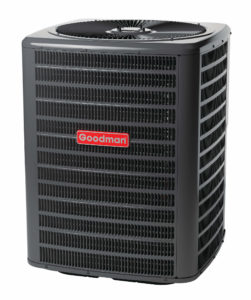Heat Pump Installation in Alpharetta, GA and Surrounding Areas
Due to their dual technology, heat pumps are gradually gaining immense popularity among homeowners. They are a part of the HVAC family. Basically, a heat pump installation in Alpharetta, GA is a self-automated heating and cooling device that has the power to keep a room either cool or warm.
A Quick Insight Into Installing a Heat Pump
Heat pumps are an ideal replacement for your cooling systems and furnaces. They consume less energy and work more smoothly than the latter ones.
Heat pumps work by transferring the heat instead of generating it. Thus, during the summers, the heat formed within the house gets transferred outside and vice versa. They are more appropriate when the temperature is mild. So, if you’re interested in one, contact the professionals for heat pump installation in Alpharetta, GA.

Types Of Heat Pumps
There are two types of heat pumps, each serving a different section like the residential, commercial, or industrial building. These two types are:
Air-source Heat Pumps
These are ductwork heat pumps and ductless heat pumps. They are ideal for residential houses.
Ground-source Heat Pumps
Under this section, heat pumps are categorized into the geothermal and absorption heat pumps. Both of them are mainly used in commercial and industrial buildings.
Our Services:
Heat Pump Installation in Alpharetta, GA
At Cool Now Solutions, We offer heating repair in Alpharetta at an unbeatable cost. Our main motive only is customer satisfaction.
Are Heat Pumps Costlier Than a Traditional HVAC System?
The answer is yes. Heat pumps do come at a high price. The cost varies depending on the HVAC company, installation cost, the type of heat pump to be installed, service charges, equipment, and heating replacement in Alpharetta. Thus the price can be in-between $4,000 to $7,500.
6 Benefits of Owning a Heat Pump
Apart from having a dual system, heat pumps have numerous advantages:
- One of the best energy-saving devices.
- The quality of air is refined with a heat pump.
- The emission of sound is better.
- Heat pumps are safer and environmentally friendly.
- The cost of maintenance is lesser.
- Longevity is better in heat pumps.
Things to Consider When Choosing the Appropriate HVAC Company
There are a few pointers that should be considered while selecting the right company for heat pump installation in Alpharetta, GA.
Flawless Performance
The installation of a heat pump should be flawless. An expert team from a well-known company will be able to deliver the service in a swift and hassle-free manner.
Excellent Quality of Work
A reputable company will not compromise on the quality of work. They will ensure that all the team members are delivering their best performance for heat pump installation in Alpharetta, GA.
Always Go For Originality
Whenever you are choosing a company, visit their website to check whether they are licensed or not. A reliable organization will always have a professional website that includes its policy, services, contact number, and reviews. Incase you need furnace repair in Alpharetta, visit the website.
Experience of the Company
Last but not least is experience. An HVAC provider should be well-trained and experienced. Once you raise a question, they will be able to solve all the doubts related to heat pump installation.
Cool Now Solutions offers marvelous heating installation in Alpharetta, GA. Our services also include maintenance and financial planning for your device’s safety. Reach out to us here or call (470) 719-8488.
Contact Us Today For Heat Pump Installation In Alpharetta, GA and Surrounding Areas
Frequently Asked Questions
- Climate: Heat pumps are designed to work best in moderate climates, where temperatures do not drop too low. It is essential to understand your region's climate to determine whether a heat pump is the right choice for your home.
- Size: The size of your heat pump should be based on the size of your home and your heating and cooling needs. A heat pump that is too small will struggle to keep your home comfortable, while a heat pump that is too large will be inefficient and costly.
- Efficiency: Look for a heat pump that is ENERGY STAR® certified, as these models are more efficient and cost-effective to operate.
- Installation: Heat pumps require professional installation to ensure they are set up correctly and operate safely.


